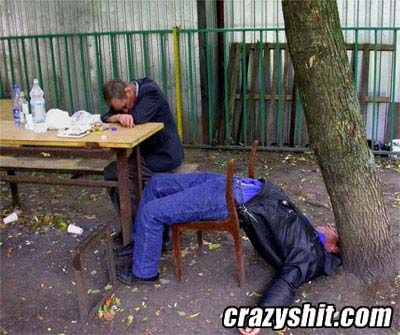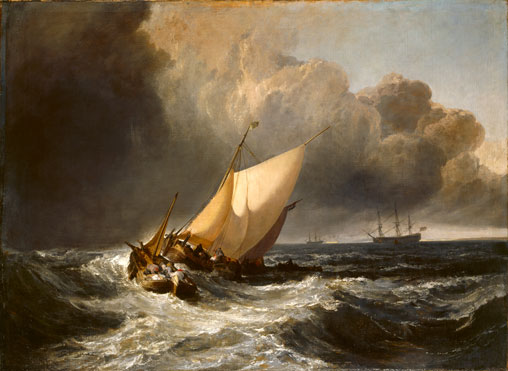Unsurprisingly, life in Hamsterdam becomes about as pleasant as what you'd find in a cockroach infested Victorian brothel, but Bunny did succeed in cleaning up the other neighbourhoods. As crime rates fell in the areas he was looking after, his idea seemed to have produced a win-win situation for all involved: the junkies had vacant houses where they could make the most of their self-inflicted slavery; the dealers became ever richer as a result of this new policy of deregulation; and the normal folk were no longer forced to live in the midst of gun toting gangsters and diseased dope fiends.
Now, the question, dear reader, is this: what would you think if such a policy were to be adopted in your own town? The reason I ask is that the gents, ladies and unmentionables of Colchester are having to consider just this as their historic town is about to get its very own "booze zone", like the never sensational and always impartial Fox News referred to it. Admittedly, the plan isn't as radical as Bunny's Hamsterdam - Colchester's free zone will only apply to alcohol - but I wouldn't be surprised if the councillor spearheading this initiative to ingratiate imbibers was a fan of The Wire, so alike is his logic to that of Major Colvin.
The councillor in question, Labour's Tim Young, explains: "We're trying to get an area of Colchester where people who are problem drinkers can go in a safe and controlled environment where they would be monitored but not be a nuisance to visitors and residents." His view is that there will always be drunks and alcoholics no matter what programs or avenues for help we provide, so why not at least confine the problem to a certain area, away from the average citizen?
The drunks, of course, thought it was a great idea: "It'll be fantastic because we can let our dogs off [their leads] and drink and nobody will disturb us." Well, good on you. The rest of Colchester, meanwhile, held a more critical view of the council's plan, along the lines of what on earth are you councillors thinking? As if alcohol doesn't already cause enough problems, why make it even easier for people to go down that all too slippery road to perdition?
Whether one sides with the councillors and drunks or that of the other inhabitants, the issue seems to be one of balancing the liberty of a hobo to be a hobo vis-à-vis the liberty of Joe Average to not have to put up with roaming alcoholics, who more than often give off an aggressive vibe, which understandably makes some people uncomfortable.
If we accept the councillors philosophy of damage limitation, that some people do and will drink too much, why shouldn't we designate a part of town for all of those who just want to booze up and let the dogs out? History, after all, sides quite forcibly with Mr Young. As long as no-one is forced to go or live there, what reason would there be to not let the bums go about their business without bothering the rest of the town's residents?
Should we insist, for example, that the long arm of the law be applied uniformly on every inch of this island? Such a notion is, however, a relatively recent one - and this should be taken into consideration. For most of history, certain parts of the countryside were considered to have laws that would be applied where necessary, but the spaces in between these communities were no-man's land, where people ventured on their own responsibility. Gradually, this frontier land came under the jurisdiction of one power or another, but that took a long, long time of persuasion by brute force.
 |
| William Hogarth - Southwark Fair (1734) |
I live in the London borough of Southwark. Many will have no doubt heard about what it was like in the days of William Shakespeare, perhaps its most famous regular. Back then, Southwark was the home of disorder, licentiousness and the low arts in general. The strict laws and regulations of the City didn't extend to its neighbour on the southern bank of the Thames. Likewise, the aristocracy of Westminster, bounded by the tight corset of knowing your place, were about as far removed from the ruffians on the Southbank as if we, today, were to compare life in Knightsbridge to the God forgotten favelas of Rio.
Naturally, this lack of laws and regulations meant that what happened in Southwark, stayed in Southwark. Whatever you did, no law would come after you; but there was also no justice to help you, should you land yourself in trouble. Thrasymachus would surely have felt at home. One would hope that the only people to venture into Southwark in these olden days were those who liked to get well drunk before catching a show of bear-baiting on the way to bash the living daylights out of some poor, unsuspecting git - who, as it happens, was probably out with a plan of equally depraved genius. Seldom is reality so neat, however, and countless good souls were destined to live out their short lives in what must have been utterly miserable conditions - moving house just wasn't as simple for them as it might be for us. Life in those days was so infinitely more nasty, brutish and short, not to mention, unfair, then we can imagine from our cushy 21st century arm chairs.
In any case, the Great Bard was so fond of the lawless Southbank that even joined a playing company that was based there, the Lord Chamberlaines Men. This group of artists, playwrights and actors had set up their flagship theatre right in the heart of this 16th century Hamsterdam. (Incidentally, the theatre is said to have been modelled on a pub just around the corner from our home. The courtyard of The George - serving since at least 1534 - does bear a striking resemblance to the balconies of the Globe.)
 |
| The George Inn |
 |
| The Globe Theatre |
Perhaps, then, it can be said that something good also came from having a part of town sans legal interference: it would seem to have inspired one of the greatest playwright of all time!
It's strikingly obvious, of course, that the rule of law is a good thing in itself. On the opposite bank of the river, the City, with its centuries old laws and regulations was probably one of the best places to live in back then because there are few things we humans like better than predictability. Just like there are few environments more conducive to human endeavour and progress than one where we can look forward being paid an honest wage for our work and not to be mugged on the way home.
 |
| The City as seen from Southwark, c 1630. |
These days, however, as a result of how the sovereign states that make up our international system have been sure to impose their authority of every square inch of their domains, a thin legal film extends pretty much over every nook and cranny of our world. This hasn't left much room for individual choice over one's lifestyle or habits. But, as it need not be so, couldn't we designate an area of Albion where people could do what they want and live how they like, warts and all?
 One of America's Founding Fathers, Thomas Jefferson, said of religion: if someone believes in twenty Gods or none, it neither breaks my bones nor picks my pockets. The same should go for being a drunk in a park that no-one else goes to. Granted, it does kind of get into yours and mine pockets via using up our health care and social services, but, by this yardstick, we should also deny others their right to eat junk food, to pollute the air with car exhaust, to increase global methane levels by eating cows which assuredly have farted quite a bit over their lives, and so on.
One of America's Founding Fathers, Thomas Jefferson, said of religion: if someone believes in twenty Gods or none, it neither breaks my bones nor picks my pockets. The same should go for being a drunk in a park that no-one else goes to. Granted, it does kind of get into yours and mine pockets via using up our health care and social services, but, by this yardstick, we should also deny others their right to eat junk food, to pollute the air with car exhaust, to increase global methane levels by eating cows which assuredly have farted quite a bit over their lives, and so on.If we accept that most everyday activities have some negative effects on society, then, how can we avoid hypocrisy while denying a few people the right to get lary on the outskirts of town, where they'll probably only bother a few squirrels?
Do we base this prescription on morality? Like religion, morality doesn't really mix well with legislation. The reason for this is simple: the rule of law should be blind to individual tastes but guarantee that every person in society is entitled to equal concern and respect. And this only works when we have an unequivocal measure for showing us what is right and what is wrong, which is something ethics and religion alike are unable to provide, as evidenced by their myriad different schools. So, what kind of standard could we use instead?
 The wise John Stuart Mill pretty much hit the nail on the head with his Harm Principle: "The only purpose for which power can rightfully be exercised over any member of a civilized community, against his will, is to prevent harm to others... In the part that merely concerns himself, his independence is, of right, absolute."
The wise John Stuart Mill pretty much hit the nail on the head with his Harm Principle: "The only purpose for which power can rightfully be exercised over any member of a civilized community, against his will, is to prevent harm to others... In the part that merely concerns himself, his independence is, of right, absolute."It will probably be impossible to ever legislate away each and every action that has or may have a harmful effect on others, but maybe that's not actually such a bad thing after all: no junk foor, no boozy nights, no air travel - doesn't sound much like a Utopia to me.
Maybe the next best thing is to ensure that we can all indulge a bit, but that the more harmful extremes are taxed higher (as they already are) and they get their own areas, so that we don't have to witness the debauchery.
As long as they don't act like the eejit travellers, who, a few years ago, ravaged Finland by intimidating and defrauding her people, killing park animals, and leaving an almighty wake of destruction in their paths - shame on them - then why wouldn't the drunks in Colchester be allowed to hang out with their mates and engage in collective suicide, drop, by drop?
I wonder what the inhabitants of Copenhagen would have to say about all this (any of you out there?) for they have their own Hamsterdam called Christiania, right in the middle of their nation's capital. Even though it's a free zone for some drugs and other shady dealings, it hasn't to my knowledge had any negative impact on Copenhagen or Danish society in general.
And, come to think of it, the whole of Holland is also a Hamsterdam, only on an international level. These sub-jurisdictions, therefore, already exist. And, metaphorically speaking, the fact that they cater for those who prefer their eggs scrambled rather than boiled, they don't seem to have brought much harm to their broader societies.
Quite the contrary. The Danes were recently told that they live in the second most prosperous country in the world! (Finland, since you ask, came in 3rd.) So as not to be outdone, the Dutch, with their famously relaxed attitudes to drugs, sex and variety of vices came in at a respectable 8th Newsweek's study, "The World's Best Countries." (This time, Denmark got to 10th, while Finland, thank you for asking, was ranked a well deserved 1st.) Now, I don't mean to imply that that either ranked so high as a result of their Hamsterdams, but having a free zone or even being one, on this evidence at least, doesn't necessarily open the gates beyond which the barbarian hordes await to ruin everything our parents and grandparents worked so very hard to build.
At the end of the day, I would guess that those interested in sex, drugs and rock 'n roll don't tend to hang out in Christiania or Amsterdam, or not that much at least - and why would they? Likewise, the green activist seldom frequents their local McDonald's - the industrial scale of red meat offends their sensibilities. On average, the Supersize Me variety would just as much stay clear of any vegan restaurants, which is fair enough. And the atheist might not visit their local church that much; I haven't heard of any priests who paint ball either. Well, fair play to all and each to their own. If I want to go to a rave, I would expect to be able to do so without having to ask for anybody's permission, save for that of my beautiful wife, of course.
There are, alas, very few of us who are not laden by some habit or vice that may prove to be a burden on others. Most things we like and do land people into hospitals, which we, the others, must pay for with tax and worry - that's the price we, society, pay for civilization.
Sir Kenneth Clark put it well, that civilization is best defined as courtesy. In other words, being civil and giving others enough space to be themselves enables each individual to work in concert. (Like a professional orchestra, if we choose a good song and follow the notation, we can produce something magical.) The offshoot of this ever so small act, courtesy, is everything we understand as progress.
It would, therefore, be courteous for us to allow people to drink as much as they like, just as others shouldn't complain when we dine at fast food joints, while, to the drunks, I hope you get your booze zone, but just remember, you're there on your own: what happens in Freechester, stays in Freechester.




